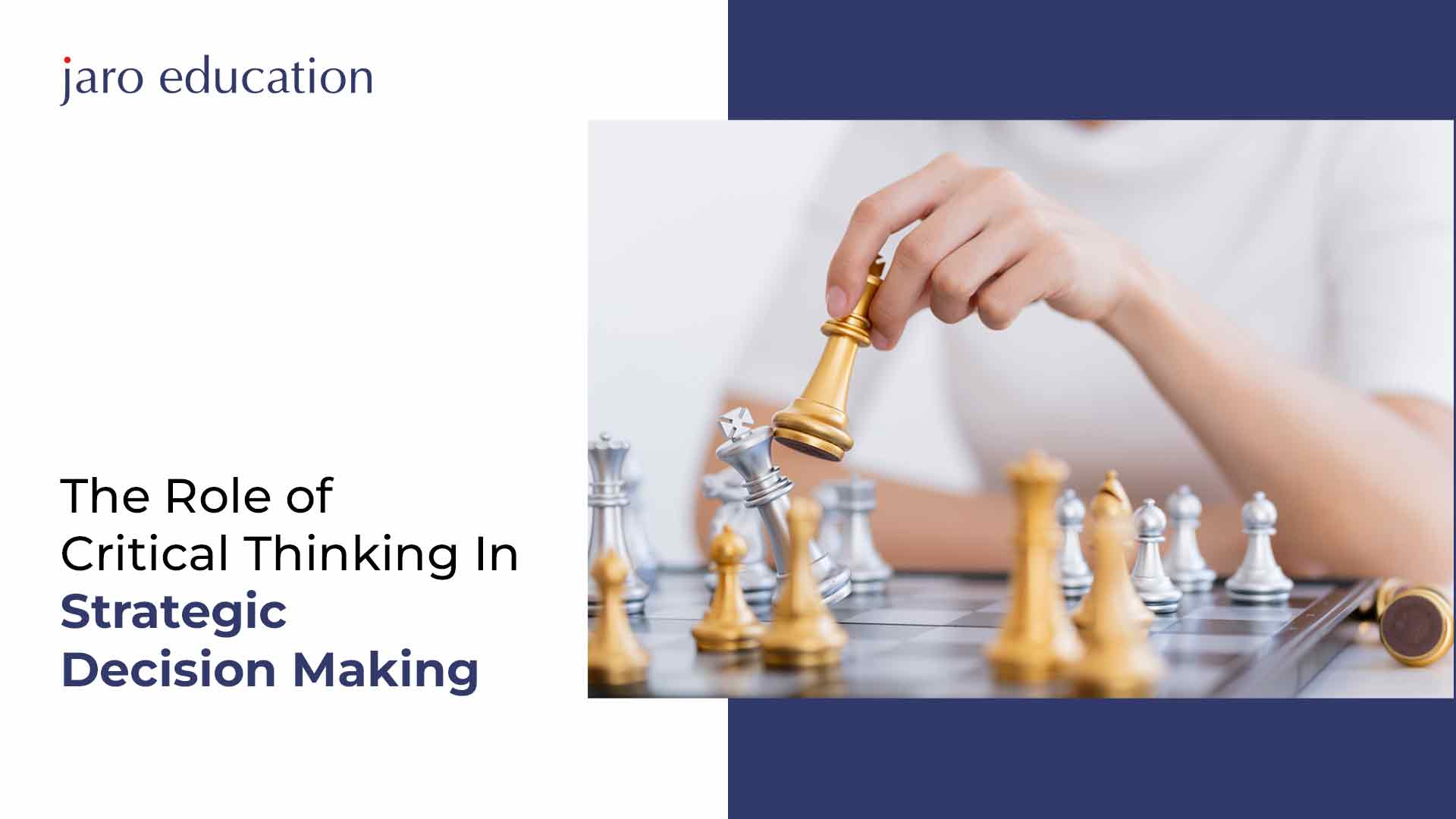In this fast-paced business world, it’s easy to get caught up in the flurry of decisions that need to be made quickly. However, quick decision making without critical thought can lead to poor outcomes, particularly for corporations. This is especially true when it comes to strategic decision making. This is why critical thinking plays a crucial role in strategic decision making and ensuring that decisions are based on sound logic, facts and evidence. In this blog post, we will explore the importance of critical thinking in strategic decision making and how it can help you make more effective decisions for your organisation.
Defining Critical Thinking
It is a systematic process that helps you to examine your assumptions, question your beliefs, and reflect on your values. It is a way of thinking that allows you to see the world in new ways and to make better decisions.
Critical thinking is an important skill for anyone who wants to be successful in business. It is especially important for those who are involved in strategic decision making. When you are making decisions about the future of your business, it is essential that you take the time to think critically about all the possible outcomes.
Defining Strategic Decision Making
What is strategic decision making? It is the process of identifying and choosing the best course of action to achieve desired objectives. It involves setting goals, gathering information, assessing options, making decisions, and implementing plans.
Critical thinking is an important part of strategic decision making. It allows you to evaluate options, make informed decisions, and avoid biases. Good critical thinking requires you to be open-minded, analytical, and reasonable.
Why is Critical Thinking Important in a Business Setting?
- Many factors contribute to the success or failure of a business, but one of the most important is the ability of those in charge to make good decisions. That’s where critical thinking comes in.
- Critical thinking is the process of gathering and evaluating information before making a decision. It involves looking at all the available evidence and taking into account all the potential outcomes before settling on a course of action.
- In a business setting, this is essential for making important decisions based on sound logic and reasoning. With so much at stake, it’s crucial that those in charge of a company can think critically and make strategic decisions that will help the business succeed.
- There are countless examples of businesses that have failed because of poor decision-making. From small businesses to large corporations, if those in charge don’t take the time to carefully consider all the options and make smart choices, the company might face issues. On the other hand, successful companies often have leaders who can think critically and make sound decisions based on all the available information.
- So, why is critical thinking so important in a business setting? Because it can mean the difference between success and failure. Those who can think critically and make strategic decisions are more likely to find themselves at the helm of successful businesses.
Ways to develop critical thinking
There are several ways that individuals can develop critical thinking skills. Some key methods include
-
Asking questions:
When you are trying to understand something, it is helpful to ask questions. This will help you to clarify your thoughts and get a better understanding of the issue at hand.
-
Breaking down problems:
Another helpful technique is to break down problems into smaller pieces. This will make it easier for you to identify the key issues and come up with appropriate solutions.
-
Analysing information:
Another important step in critical thinking is to analyse the information you have gathered. This includes looking at both the positive and negative aspects of each option before making a decision.
-
Generating options:
Once you have gathered all the information available to you, it is time to generate options. This can be done by brainstorming different ways to solve a particular problem at hand.
-
Evaluating options:
Finally, you should evaluate each potential solution and make an informed decision. This will help you to make the best possible choice for your business.
How are Critical Thinking and Strategic Decision Making correlated?
The correlation between critical thinking and strategic decision making is important because, without critical thinking, it would be difficult to make sound decisions that consider all of the relevant information.
Critical thinking skills are important in all aspects of life, but they are especially important in strategic decision making. This is because the latter often involves complex issues with many different stakeholders and a lot of potentially conflicting information. To make the best possible decisions in these situations, it is essential to be able to think critically and weigh all of the different factors involved.
How an Executive MBA From Dayananda Sagar University, Bengaluru (DSU) Can Help You Boost Your Critical Thinking & Decision-Making Skills?
With more and more businesses entering the domain of VUCA (volatility, uncertainty, complexity and ambiguity), it is paramount for business leaders to make strategic decisions based on unstable market conditions. This is where an Executive MBA program from Dayanand Sagar University can help. A comprehensive 17-month course, the syllabus includes Human Resource Management, Accounting for Managers, Financial Accounting, Business Law, Operations Management, and Research Methodology, among many more. Moreover, Strategic Decision Making & Management is an integral part of the curriculum, which will help develop your critical thinking skills from a business standpoint. So enroll in the Executive MBA program today to become an exceptional business leader.
Conclusion
Critical thinking has a significant role to play in strategic decision-making. Using this skill, you can evaluate your options and uncover the most suitable solution for any given situation, regardless of which industry or field you are operating in. By learning both, you can become a better decision-maker and ascend the corporate ladder with your business acumen.






